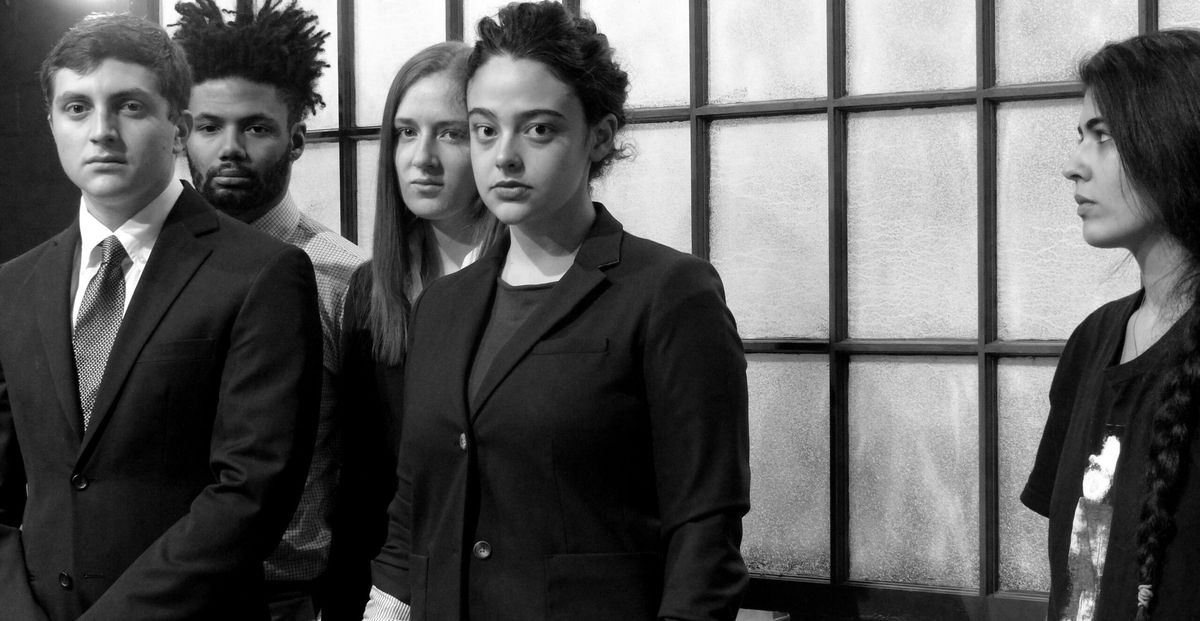“The Right Move” Invites Viewers to Reconsider Nature of Empathy

Every writer with a particular philosophy in mind while writing must maintain an extremely delicate balance between the demands of conveying the aspects of this idea and the demands of the story. “The Right Move,” written by Lara Min ’16, is a great example of one’s position upon this menacing precipice.
At times, “The Right Move” totters perilously, as though on a tightrope before the audience, under the burden of Min’s thematic concerns with compassion, empathy and connection. To accentuate the play’s themes, Min clearly distinguishes the characters, almost to the point of clichés: Kieran (Justin Henriksen ’18), the cocky jerk; Eddie (Thom Mellert, Hampshire ’15), the dope-smoking weirdo; Liv (Noor Qasim ’18), the love struck sweet heart, etc. Despite the initial semblance of cliché, the characters’ depths are fully explored in the second half, which gives the feeling of the show being “set up” during the first half for a later set of events. Of course, that’s how plays are — you put the gun on the stage so it can fire later on. However, it was at times obvious that the characters on stage seemed to be anthropomorphic chess pieces, moved into convenient locations wherein their true character could be exposed. The only characters who did more than hint at something deeper in the first half were James (Mark Hawkins ’16) and Emma (Farah Haidari ’16), which made other characters seem empty by comparison until later in the show.
While the character development did not happen until later in the play, there was a lot of focus on the idea of empathy and connections with others, which were explored well through the on-stage dynamic the play conveyed. Empathy is easy to think about in the abstract, but “The Right Move” forces the audience into uncomfortable and troubling positions that showcase the true, practical struggles of really connecting with others.
There is an obvious lack of empathy between the main group of friends and Emma, who is an outsider to the group. The audience can easily sense the distress from Emma and watched the group reject her instead of trying to help. It’s easy to say in this situation that the group is wrong and judgmental and not empathetic, and indeed the audience was necessarily primed to feel that way as impartial observers. But what was even more compelling were the complex situations where the blame was hard to place, emphasizing the intricate nature of empathy that Min was able to portray. For instance, Charlotte (Julia Rothacker ’16) can’t empathize with James because she doesn’t understand him. Or when all of the empathy and compassion that Liv has still isn’t enough for Kieran. It’s difficult, if not impossible, to decide where to point one’s finger in these kinds of cases.
Even more profoundly troubling is the hero of our story, James. James is the character who is able to reach outside of himself to meet Emma emotionally and truly connect with her. We root James on in his journey within himself, and with Emma, and within the world he’s been forced into by the expectations of others. But James is unabashedly ruthless towards Charlotte, and refuses to be compassionate towards her. James strings Charlotte along, ignores her when he feels like it, and doesn’t even spare a word for her as she begs for him to just talk to her candidly. James has no problem crushing Charlotte, despite the emotional depth and intelligence that we can see in him and Emma’s relationship. In those situations, the audience is tempted to coddle James, because he’s our unlikely hero, and say “He was going through something! Charlotte should get off his back!” but the intensity of Charlotte’s pain drowns out all attempts at justification.
Perhaps the most profound and eloquent trick that Min plays on the audience to expose their own proclivity to disregard the struggles of others is in the character Eddie. Eddie is a weird, buffoonish man who only seems to smoke weed and make us laugh. He serves many times as the comic relief of the show, but there really isn’t anything funny about his situation. He is abused by his one and only friend, who was using him for his money. He gets high constantly so that other people will want to be around him and so that he can handle his reality. When Eddie stands before the crowd and admits that he self-medicates to cope with loneliness and bleakness, laughs erupted from the audience and, when I looked around me, I saw that almost everyone was smiling. The other characters’ soliloquys were heart wrenching and sad (except good ol’ Kieran’s), but because the audience identifies Eddie as just comic relief, they don’t recognize his pain as something with which to empathize. The fact that most of the audience left the show without ever realizing this cements the reality of how easy and intuitive it is to be uncompassionate.
“The Right Move” maintains its balance between philosophy and story, and manages to be hilarious and enlightening at the same time. Despite some wavering in the first half that left the show feeling one dimensional, “The Right Move” is a thorough, informative and rich exploration of how fraught connection with other people really is.




Comments ()